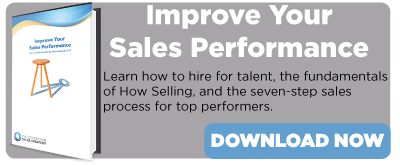 More than anything else, I write about industry, economic, and consumer trends at The Marketing Mind Blog. But there is one trend that deserves some attention here on this sales-oriented blog: 2014 has been the best year for job growth since 1999. That’s according to a story from CNN Money, but it’s not hard to find other evidence of solid employment growth.
More than anything else, I write about industry, economic, and consumer trends at The Marketing Mind Blog. But there is one trend that deserves some attention here on this sales-oriented blog: 2014 has been the best year for job growth since 1999. That’s according to a story from CNN Money, but it’s not hard to find other evidence of solid employment growth.
Why This Should Matter to You
There’s a good chance the person you’ve been calling on has moved upward, onward, or out. With increased employment, more people are getting promotions, either within the company they work for now, or somewhere else where a company will pay more for their services.
That means the face of your client could be changing. Simple employment “churn” could erase the friendly relationship you had with last year’s buyer… and force you to create a new relationship with the person who has that job now. You’re probably thinking of a few examples of this trend that you’ve come across recently.
Getting deep in an organization—far beyond the person who simply signs-off on orders—has always been a good idea. But when you look at today’s employment picture and the amount of churn it is likely to create, getting beyond a lone buyer becomes a great idea if not an absolute necessity.
Here’s what you should be doing now:
- Don’t focus simply on what the buyer wants. Focus on what her company needs.
- If you’re dealing with a technical buyer or procurement director, ask more questions about the actual users of the products or services you sell; the people who will enjoy the benefits of your product, or who will suffer if another option is chosen.
- Ask more questions about the decision process. Who decides there is a need? How does a company get on the consideration list or get invited into the RFP process? Are there any absolute deal-breaking issues, and if so, what are they?
- How does the product or service you offer fit into the value equation of the company you’re selling to?
- What other things could you be doing—beyond the business you already transact—to make the value your client gets from you even more compelling?
- The person you were talking to on your last call might not be the person you talk to next. Who else, within the organization, should you meet between now and then?
The best way to avoid the shock of change is to anticipate it. After all, we all know change is happening faster than ever before, and in many aspects of our business. Personnel changes can be anticipated in an economic climate like this one… so it’s a change you can be ready for before it happens. Why not do that?



